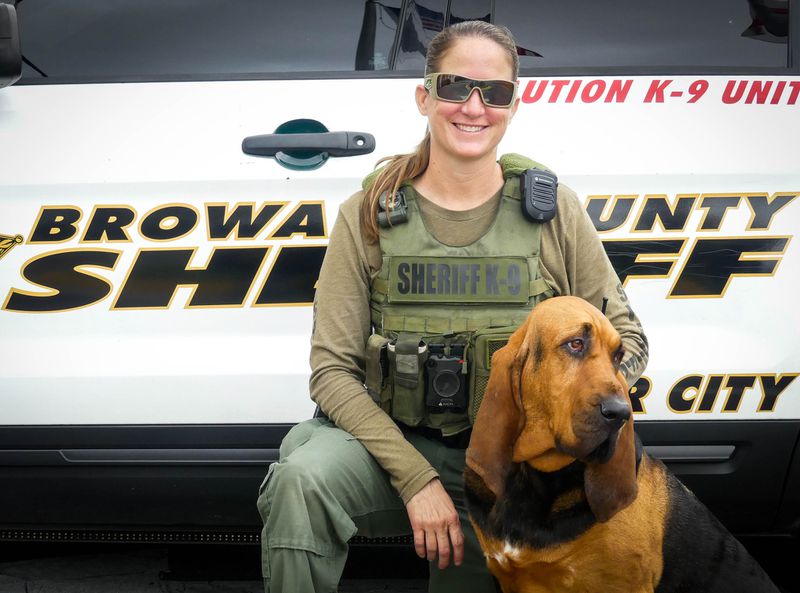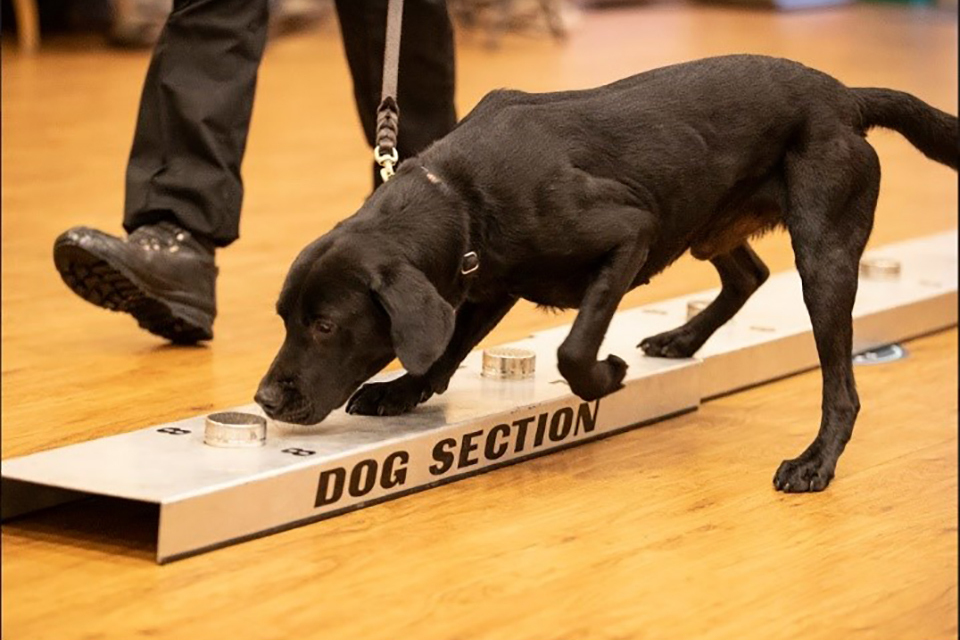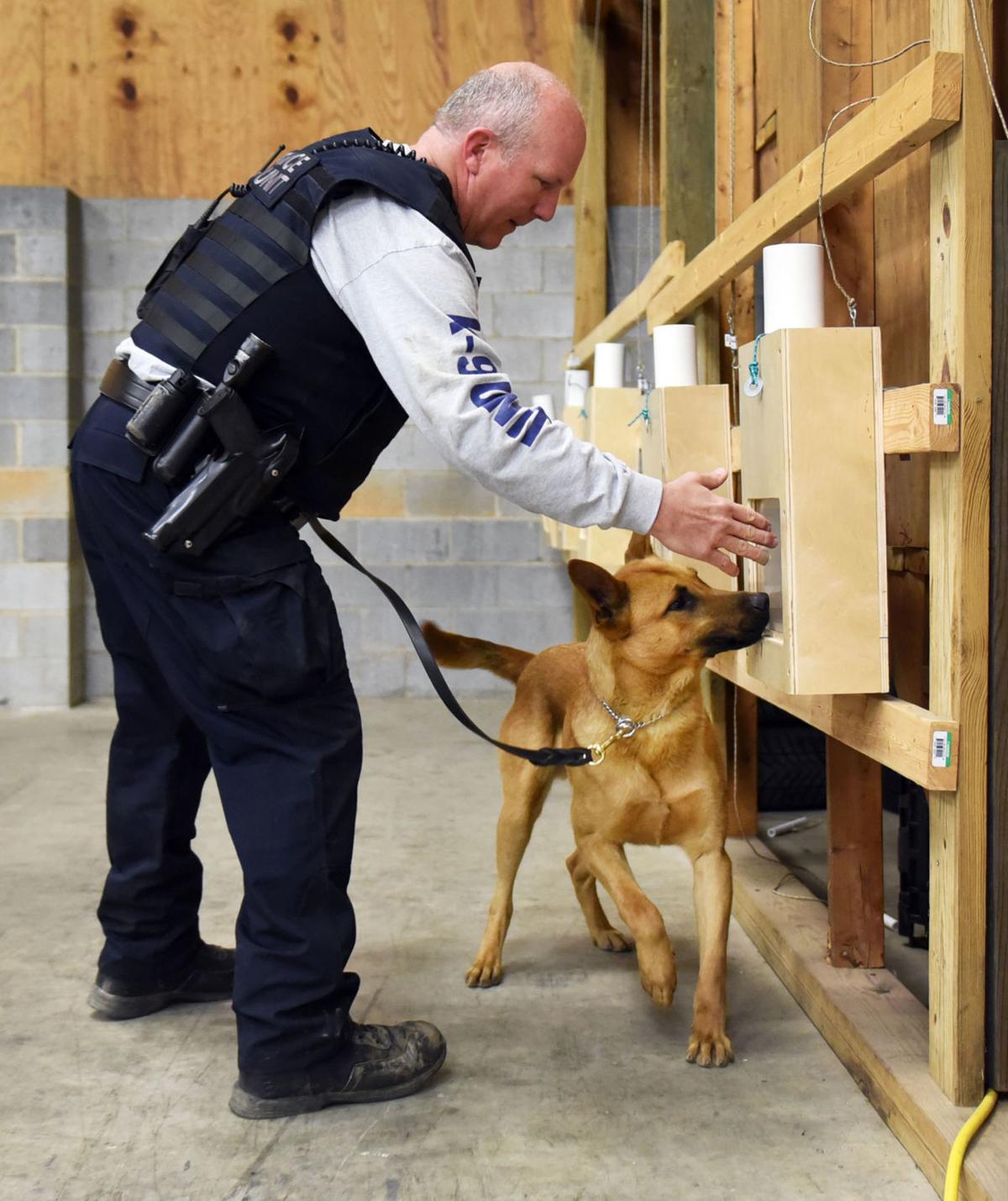how are drug dogs trained
How Are Drug Dogs Trained?
Drug dogs are an essential part of the fight against drug trafficking. They can sniff out drugs hidden in a variety of places, from luggage to cars to people's clothing. But how are these dogs trained to do what they do?
The Basics of Drug Dog Training
Drug dog training starts with basic obedience training. Dogs need to be able to follow commands, such as sit, stay, and come, before they can be taught to detect drugs. Once they have mastered basic obedience, they can move on to drug detection training.

Drug detection training is a gradual process. Dogs are first exposed to the smell of drugs in a controlled environment. They are then rewarded with treats or praise when they show an interest in the drugs. As the training progresses, the dogs are exposed to stronger smells of drugs and are required to find them in more difficult places.
Drug dog training can take anywhere from six months to a year. Once a dog has completed training, it will be certified by a national organization, such as the National Narcotic Detection Dog Association (NADD).
The Different Types of Drug Dogs

There are two main types of drug dogs: passive alert dogs and active alert dogs. Passive alert dogs sit or stay when they find drugs, while active alert dogs bark or scratch when they find drugs. Passive alert dogs are more common, as they are less likely to startle people or cause a scene.
How Drug Dogs Are Used
Drug dogs are used by law enforcement agencies to search for drugs at airports, borders, and other high-traffic areas. They are also used by customs officials to inspect cargo and mail. Drug dogs can also be used by private companies to search for drugs in their workplaces.

Drug dogs are a valuable tool in the fight against drug trafficking. They can help law enforcement agencies to intercept drugs before they reach the streets, and they can help to keep our communities safe.
How to Train Your Own Drug Dog
Training your own drug dog is a challenging but rewarding experience. It is important to remember that drug dog training is a complex process that requires patience and dedication. If you are considering training your own drug dog, there are a few things you need to know.

First, you need to find a qualified trainer who can help you with the process. Drug dog training is not something that you can do on your own. You need to have someone who knows what they are doing to help you train your dog properly.
Second, you need to make sure that your dog is a good candidate for drug dog training. Not all dogs are suited for this type of work. You need to have a dog that is intelligent, obedient, and has a strong prey drive.
Third, you need to be prepared for the time and expense involved in drug dog training. It can take anywhere from six months to a year to train a drug dog, and it can cost thousands of dollars.

If you are willing to put in the time and effort, training your own drug dog can be a rewarding experience. You will have a loyal companion who can help you to keep your community safe.
Here are some tips for training your own drug dog:
- Start with basic obedience training. Your dog needs to be able to follow commands before you can start training it to detect drugs.
- Use positive reinforcement. Reward your dog with treats or praise when it shows an interest in the drugs.
- Be patient and consistent. Drug dog training takes time and effort. Don't get discouraged if your dog doesn't catch on right away.
- Work with a qualified trainer. Drug dog training is a complex process that requires the help of an experienced professional.

If you are interested in learning more about drug dog training, here are some resources that you can check out:
- The National Narcotic Detection Dog Association (NADD): https://www.nadda.org/
- The National Association of Canine Detectors (NACD): https://www.nacd.org/
- The American Kennel Club (AKC): https://www.akc.org/
Conclusion

Drug dogs are an essential part of the fight against drug trafficking. They can help law enforcement agencies to intercept drugs before they reach the streets, and they can help to keep our communities safe. If you are interested in training your own drug dog, there are a number of resources available to help you get started.
Thank you for exploring our website by how are drug dogs trained. Your presence fuels our commitment to excellence. Come back for a more enriching experience!
